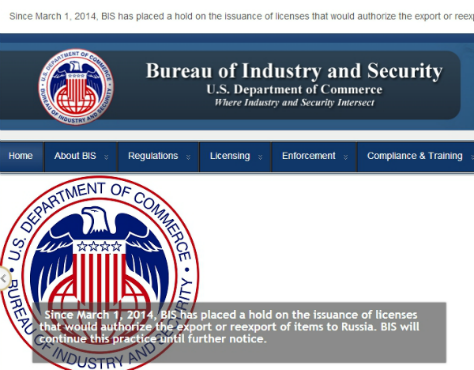![By Mandy Coombes [CC-BY-SA-2.0 (http://creativecommons.org/licenses/by-sa/2.0)], via Wikimedia Commons http://commons.wikimedia.org/wiki/File%3AJustin_Timberlake_-_Justified_World_Tour_-_Earls_Court_-_2.jpg By Mandy Coombes [CC-BY-SA-2.0 (http://creativecommons.org/licenses/by-sa/2.0)], via Wikimedia Commons http://commons.wikimedia.org/wiki/File%3AJustin_Timberlake_-_Justified_World_Tour_-_Earls_Court_-_2.jpg](https://www.exportlawblog.com/images/timberlake.jpg)
Armed with over 30 million Twitter followers and a shelf-full of Grammy and Emmy awards, Justin Timberlake may be staring down U.S. sanctions better than Putin himself. Reuters reported last week that JT’s sold-out show next month at Helsinki’s Hartwall Arena will go on despite the fact that the largest indoor venue in the country is owned by Gennady Timchenko, Arkady Rotenberg and Boris Rotenberg. All three Russians are on the SDN List because they are, in OFAC’s words, members of the Putin “Inner Circle.” Perhaps equally as important to Finnish music fans, Miley Cyrus, Aerosmith and Nine Inch Nails are also scheduled to perform at the Hartwall Arena between now and June 1st.
Because U.S. company Live Nation is the concert promoter for these U.S. musicians, there is an understandable concern that dealings with Hartwall Arena may be impermissible under U.S. sanctions law because the 15,000-seat venue is entirely owned by a troika of billionaires on the SDN List. But no one will have to stop the music as Live Nation announced that “U.S. officials had indicated at the weekend that the sanctions would not prevent the concerts going ahead.”
Some have speculated the shows would go on because Live Nation may have already paid in full Arena Events Oy, the entity owned by Timchenko and the Rotenbergs which owns the Hartwall Arena, prior to the three Russians being added to the SDN List. But that logic doesn’t hold up because, if paying Arena Events Oy would be a violation, so would, according to the relevant executive order, providing services “for the benefit of” Arena Events Oy. If Live Nation could not pay for the concert, Justin and Miley could not perform their services.
The most likely response that OFAC may have given Live Nation has been a recent focus of ours: the so-called 50 percent rule. We reported a few weeks ago that Visa and Mastercard resumed transactions with banks owned by the Rotenbergs because, as we understand it, no one Rotenberg owns 50 percent or more of the banks.  Presumably, then, Timchenko and the Rotenberg Brothers do not individually hold more than 50 percent.  Of course, an entity owned entirely by three Russian SDNs is a good candidate for designation at any time.  You have to imagine that OFAC may have made some assurances to Live Nation else Live Nation would be ill-advised to fly its pricey talent in private jets to Finland only to have the Arena designated moments before the stars arrive.
These concerts are, however, a hallmark of how out of tune sanctions enforcement appears to be in relation to the zeal of the President’s executive orders authorizing the sanctions in the first place. What better opportunity for OFAC to elucidate the 50 percent rule in order to explain how U.S. sanctions will permit four American musical acts, who are each listened to by millions around the world, to perform before tens of thousands of people about a two-hour drive from the Russian border in an arena owned solely by three Russian individuals on the SDN List.
Enforcing sanctions against entities owned or controlled by someone already targeted by sanctions is an important arrow in any country’s sanctions quiver. How such an enforcement policy is defined and articulated publicly is critically important to its effectiveness.
As it stands now, U.S. sanctions would permit Miley Cyrus to sing her hit song “Party in the U.S.A.” to a concert with Putin in attendance. For a whole host of reasons, we don’t want to see that.

 Posted by
Posted by  Category:
Category: 

![Putin Feeds Animals by premier.gov.ru [CC-BY-3.0 (http://creativecommons.org/licenses/by/3.0)], via Wikimedia Commons http://commons.wikimedia.org/wiki/File%3APutin_animals.jpeg Putin Feeds Animals by premier.gov.ru [CC-BY-3.0 (http://creativecommons.org/licenses/by/3.0)], via Wikimedia Commons http://commons.wikimedia.org/wiki/File%3APutin_animals.jpeg](https://www.exportlawblog.com/images/putin.jpg) About the only thing the current partisanly-split Congress can agree on is sanctions legislation: first Iran and now Russia. So the
About the only thing the current partisanly-split Congress can agree on is sanctions legislation: first Iran and now Russia. So the 
![SMP Bank Credit Cards via http://smpbank.ru/uploads/show/c20c2f8bd8d7d2550bdd3b4c38bbdd00839d8fd2.jpg [Fair Use] SMP Bank Credit Cards via http://smpbank.ru/uploads/show/c20c2f8bd8d7d2550bdd3b4c38bbdd00839d8fd2.jpg [Fair Use]](https://www.exportlawblog.com/images/SMP_Bank.jpg) Last week, this blog
Last week, this blog 

